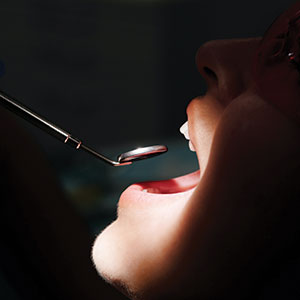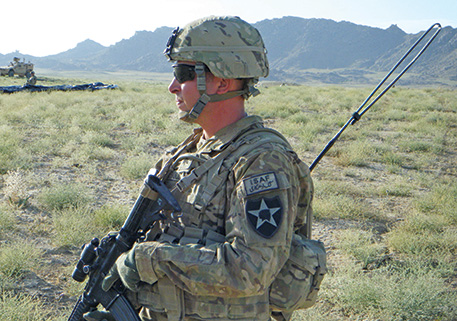 Just 15% of the more than 9 million veterans enrolled in Department of Veterans Affairs health care are eligible for dental benefits. However, the number of veterans actually receiving VA dental care is much lower—about 463,000—according to senators supporting legislation that would significantly increase access.
Just 15% of the more than 9 million veterans enrolled in Department of Veterans Affairs health care are eligible for dental benefits. However, the number of veterans actually receiving VA dental care is much lower—about 463,000—according to senators supporting legislation that would significantly increase access.
The Veterans Dental Care Eligibility Expansion and Enhancement Act of 2021 (S. 3017) would remove the current barriers to VA dental care by broadening eligibility for all veterans enrolled in VA health care. The bill also seeks to address the shortage of dentists by providing incentives to dental school students and mandates the expansion of VA dental clinics in all 50 states.
“As the former chair of the Senate Committee on Veterans’ Affairs, I have seen up close the pain, death and despair caused by war and its aftermath,” Sen. Bernie Sanders said when introducing the bill last October. “Honoring that extraordinary sacrifice and bravery is one of the most important commitments we have as a country. That means making sure our veterans and their families have access to the best and most comprehensive health care, including dental care, our country can provide.”
Right now, to receive VA dental benefits, veterans must have a service-connected dental disability or condition they receive compensation for; be a former prisoner of war; have a noncompensable service[1]connected dental disability caused by combat or service trauma; have a dental condition verified by the VA as aggravating a service-connected disability; be rated 100% disabled or rated for Individual Unemployability; be receiving Chapter 31 educational benefits; or require dental care due to a condition being treated through inpatient VA care.
“Today, dental care is not treated like the vital health care it is, and only a small fraction of veterans are eligible to receive dental care through the VA because of stringent eligibility requirements,” added Sen. Kirsten Gillibrand. “This bill would help eliminate eligibility restrictions and make dental care more affordable and accessible to all veterans.”
Research has linked gum disease to several chronic conditions affecting veterans, such as diabetes, heart disease and stroke.
DAV supports S. 3017, in accordance with DAV Resolution No. 18, which recognizes the importance of oral health as a basic need for veterans and calls on the VA to expand dental care for all veterans.
The leadership of the Senate Veterans’ Affairs Committee held a roundtable on VA dental care in April, which DAV took part in.
“Dental care is an integral part of an individual’s overall health, and we should treat it as such,” said National Legislative Director Joy Ilem. “Right now, there are too many limitations that prevent veterans from obtaining this essential benefit that we believe should be part of VA’s ‘whole health’ approach, so we greatly appreciate the opportunity to have this discussion and highlight this important issue.”
Find updates to other major veteran legislation by joining DAV CAN (Commander’s Action Network) at DAVCAN.org.






